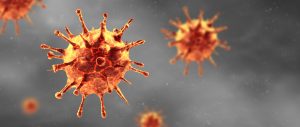The Indoor Allergen Generation
The Indoor Allergen Generation
It’s easier than ever to be sucked in for hours – even days – in the comfort of our own homes. Certainly, in today’s tech world we have access to so many social media platforms at our fingertips. We have high-speed internet, great program/movie platforms like Netflix, Hulu, and Amazon Prime. And binge-watch on amazing cutting-edge big screen TV’s. Taking walks, hikes, and enjoying the outdoors is almost an outdated concept to many. However, is staying indoors as safe as we think it is? Could we be exposing ourselves to more allergens and bacteria without even knowing it? Are we creating the Indoor Allergen Generation?
Allergens
According to Healthline.com, more than half of the people who participated in the allergen survey in America have had positive reactions to one or more allergens.
Other recent allergen studies have shown that over 20 million Americans have been diagnosed with dust mite allergies. 1 in 13 people in the US has been diagnosed with asthma according to the CDC (Massachusetts has the highest current prevalence of asthma in children 15.8%). And the air in our homes is 2 to 5 times more toxic than outdoor air.
Tiny Particles in the Air
The problem with most indoor air environments is the combination of oxygen-hydrogen and nitrogen molecules all bouncing off each other. They exchange energy and bounce off walls, furniture, and ceilings faster than the eye can see.
Everything introduced into our air indoors is pushed around by these molecules. That is how smells, odors, germs, viruses, and dust spread so quickly. When we look up at the sunlight coming through the blinds or our atrium windows we can the dust particles seem to be dancing in midair.
Chiefly, the movement of particles in the air has two critical impacts on our health:
1) Large particles float longer than average.
2) Very small particles don’t have enough weight/mass to pass through filters and become permanently suspended in the air we breathe.
Why Filters Don’t Work
HEPA filters, which have been considered the best at capturing airborne particles only catch a small part of the problem. In fact, the majority of the most harmful particles like smoke and viruses are smaller than .3 microns. HEPA filters do not kill mold, bacteria, or viruses and do not breakdown any of the chemical-phase compounds.
Exceedingly small and dangerous compounds and proteins pass right through these filters and enter right back into the air. Most HEPA based filters require a unit in every room and filters need to be replaced monthly for optimum performance. Traditional air purifiers are inefficient and rely on contaminants floating through the air to find their way to the filtration unit. For these systems to work properly, all the air in the environment has to physically pass through mechanical filters for contaminants to become trapped.
Why Air Purifiers Do Work
The space-age brought air-tight shuttles and space stations. NASA needed more effective ways of combating indoor air problems leading to the invention of proactive air purifiers.
Proactive air purifiers use a unique indoor air quality process to naturally produce airborne scrubbers that actively seek out and destroy pollutants in the air and on surfaces 24 hours a day. Unlike traditional passive air purifiers, they produce and distribute activated oxygen and charged particles to every corner of your environment that actively seek and destroy odors, smoke, dust, mold, bacteria, and viruses.
For more information on the best type of air purifier for your home and business visit www.thetriadaer.com. As an added bonus for being a 100 Year Lifestyle subscriber, use coupon code 100year for a $200 discount!
- SHARE THIS POST



